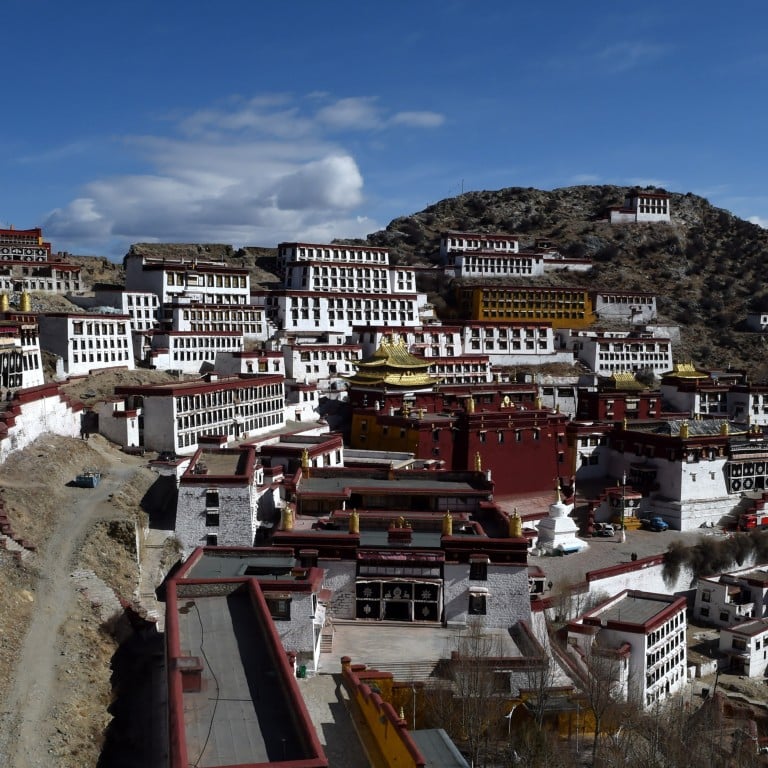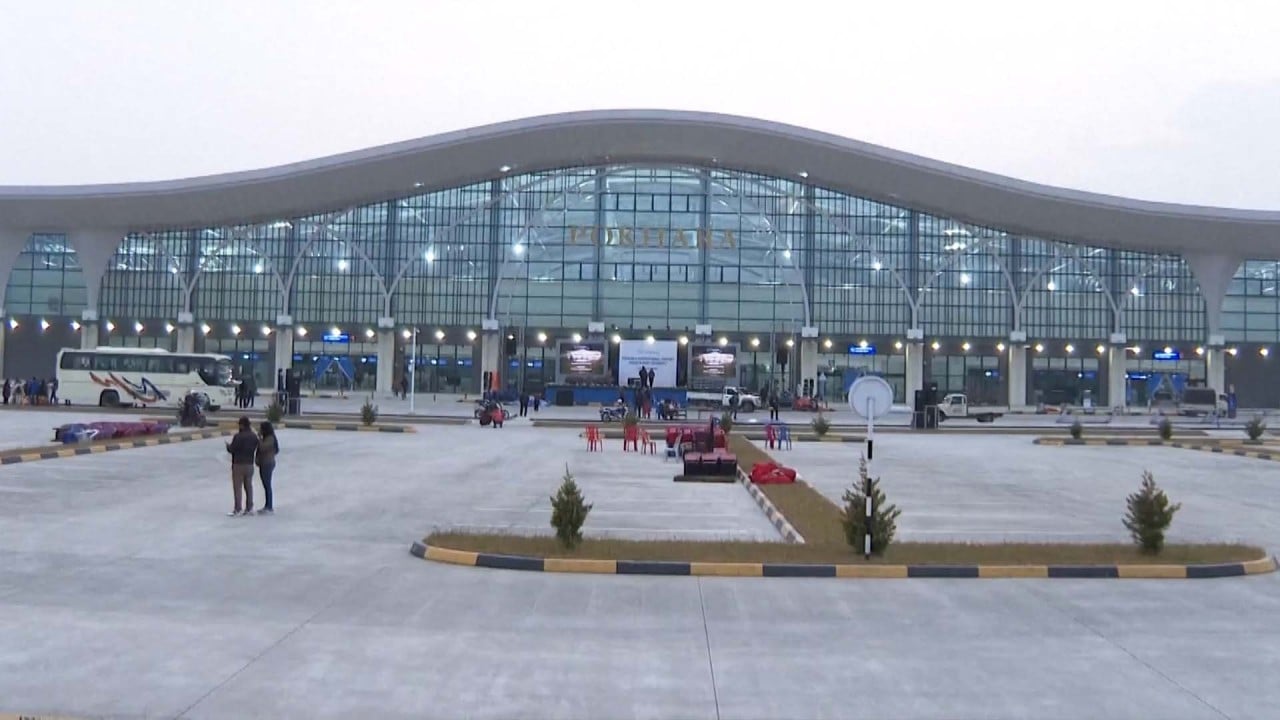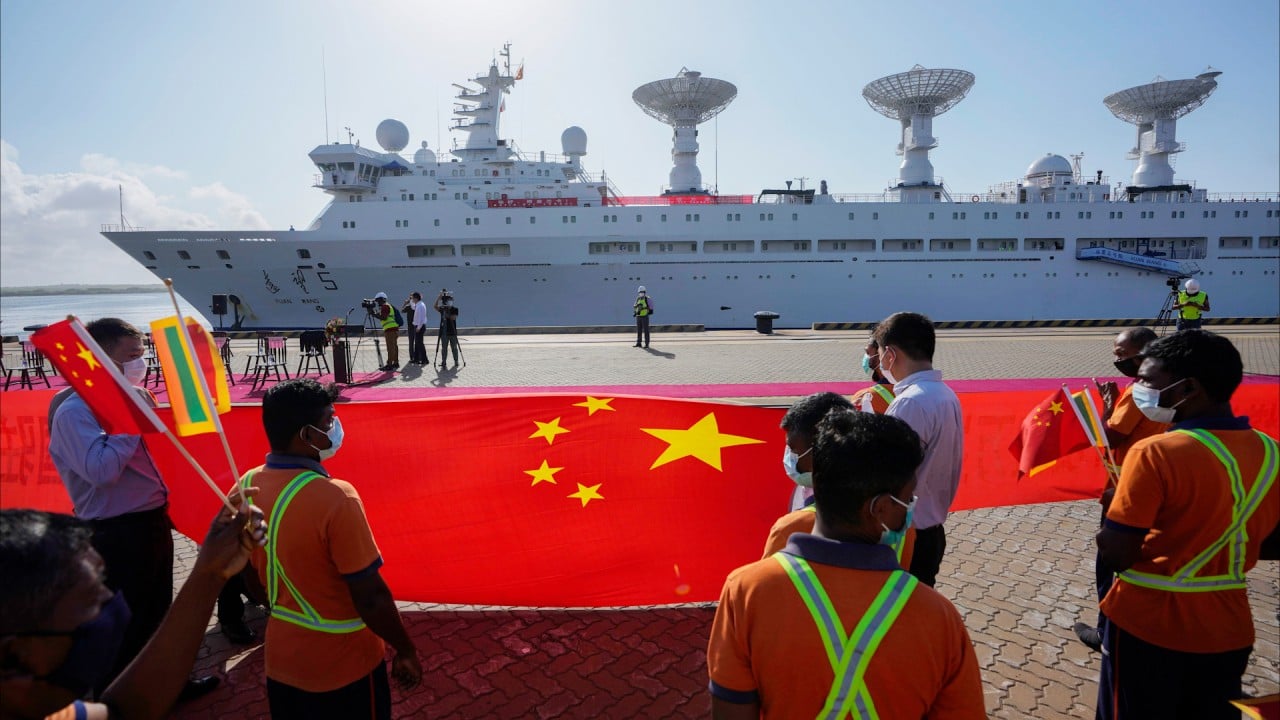
Are China officials aiming to charm the neighbours over next Dalai Lama choice?
- Regional visits by Tibet’s party chief and chairman may be part of an attempt to win support from Buddhists on succession issue
- Observers said the higher profile for provincial officials is also part of Beijing’s push to bolster neighbourly ties
Yan led a delegation to the Maldives, Thailand and Myanmar from November 19 to 28, to “comprehensively promote the successful practice and rich experience of the Communist Party in governing Tibet … and to promote extensive exchanges and cooperation under the Belt and Road Initiative”, according to the official Tibet Daily.
It followed a 10-day visit by Wang to Nepal, Sri Lanka and Singapore to “strengthen people-to-people exchanges, promote closer economic and trade contacts, and deepen practical cooperation in various fields”, according to an earlier report by the same newspaper.
Robert Barnett, founder of the Modern Tibetan Studies Programme at Columbia University and currently an affiliate lecturer with King’s College London, said the recent trips might be part of Beijing’s attempts to win support from regional Buddhists over the Dalai Lama succession issue.
“That is a very important political issue for China,” he said.
Beijing insists that it has the right to approve the appointments of all senior Tibetan Buddhist figures – including the Dalai Lama and Panchen Lama – as a legacy inherited from China’s emperors.
That assertion has been strongly opposed by the Dalai Lama and his followers, who say it is up to the Tibetans to decide. The Dalai Lama, who turned 88 in July, said that Beijing was trying to contact him “officially or unofficially”.
Barnett said “this might be why these officials from Tibet included Buddhist countries, or countries with significant Buddhist populations, in their itineraries”.
“China may be sending these officials from Tibet abroad to step up pressure on foreign governments in the region to promise total support for China’s claim to have the sole right to select the next Dalai Lama,” he said.
Lin Minwang, a professor at the Institute of International Studies under Fudan University in Shanghai, said the trips could be seen as part of Beijing’s push for provincial officials to play a bigger role in China’s diplomatic drive to win over neighbouring countries.
Provincial leaders take centre stage in China’s push to charm neighbours
China has been on a regional image-boosting spree since lifting all pandemic restrictions in early January, following three years of near isolation under a strict zero-Covid policy.
This has led to a higher profile for some provincial officials, as Beijing focuses on the border regions’ close cultural and historical ties with the neighbouring states.
Xinjiang party chief Ma Xingrui, for instance, has travelled several times to countries in Central Asia, a culturally close resource-rich region seen as crucial to stability on China’s western border.
“China’s provinces – especially those on the frontiers – share a lot of common interests with the neighbouring countries, and now [the leaders of] the local governments are encouraged to ‘go out’,” Lin said.
“This is indeed a break with the tradition of diplomacy being solely carried out by the central government.”
The countries visited by the officials – Thailand, Myanmar, Sri Lanka and Nepal – also had “a variety of connections with Tibet, for example, Buddhism, which makes them very close”, Lin added.
Nepal, which shares a 1,389km (863-mile) border with Tibet, is home to a sizeable Buddhist population. It is also the only country to have a consulate in Lhasa, the capital of the autonomous region.
Tibet, which also borders Myanmar, India and Bhutan, has often been described by local officials as a “major gateway” to South Asia under China’s belt and road global investment and infrastructure programme.
Bolstering stable neighbourly ties has been a centrepiece of Chinese foreign policy since President Xi Jinping took over in 2013 and provincial leaders have been encouraged in recent years to take an active role in promoting foreign relations.
During the Central Foreign Relations Work Conference in 2018, Xi urged local governments to better coordinate and allocate foreign affairs resources, calling it “an important part of the foreign affairs work of the party and the state”.
Months later, Tibet hosted its first trans-Himalayan cooperation forum in Nyingchi. India, which has border disputes with China in the Himalayas and has not joined the belt and road programme, was absent in 2018 and 2019.
At the forum’s latest edition in October – with India again not present – China’s top diplomat Wang Yi called on attending officials from Nepal, Pakistan, Afghanistan and Mongolia to “jointly maintain regional unity, and respect each other’s sovereignty and territorial integrity”.
Chinese Foreign Minister calls for respect for ‘territorial integrity’
However, foreign trips were once rare for officials in Tibet, a region of great political sensitivity for Beijing after a failed uprising in 1959 saw the Dalai Lama, Tibet’s spiritual and political leader, flee to India and set up a Tibetan government in exile.
Beijing says it peacefully liberated Tibet in 1951 after sending troops into the region and boosted its development with billions of dollars of investment, though the United Nations has raised concerns with its human rights record there.
Before becoming party chief of Tibet, Wang made his name as security chief of neighbouring Xinjiang and features on several Western sanctions lists over accusations of human rights violations.
China promotes its most sanctioned official to Tibetan party chief
Since anti-government riots in Lhasa in March 2008, Beijing has tightened its grip on Tibet, and closed it to most foreigners.
But top officials in Lhasa sometimes host foreign leaders and diplomats – including Nepal’s President Bidya Devi Bhandari, whose trip was part of a state visit to China in 2019. Diplomats from Europe and the US have also visited.
Since 2010, four US ambassadors to China – Jon Huntsman, Gary Locke, Max Baucus and Terry Branstad – have visited Lhasa.
The Chinese readouts from Yan Jinhai and Wang Junzheng’s trips suggest the officials from Tibet were unleashing their full diplomatic charms.
Chinese academics want Tibet to be known as Xizang to help ‘reconstruct’ image
In Nepal, Wang pledged that Tibet would “give full play to its advantages in location, geography and humanities in deepening exchanges and cooperation with Nepal, and jointly build a trans-Himalayan connectivity network”.
In Sri Lanka, he vowed to boost cooperation in culture, arts and ecology, and in Singapore he said Tibet should take notes from the city state on urban planning and entrepreneurship.
On his stop in the Maldives, Yan donated 1,500 tonnes of bottled water, to help the Indian Ocean archipelago which is struggling to maintain fresh supplies because of rising sea levels.
Yan, who served as Lhasa party chief from January 2021 to April last year, met local business leaders during his visit to Thailand.
He called for stronger political trust in Myanmar, as well as closer coordination on security and development, and also met the tourism and hotels minister.



